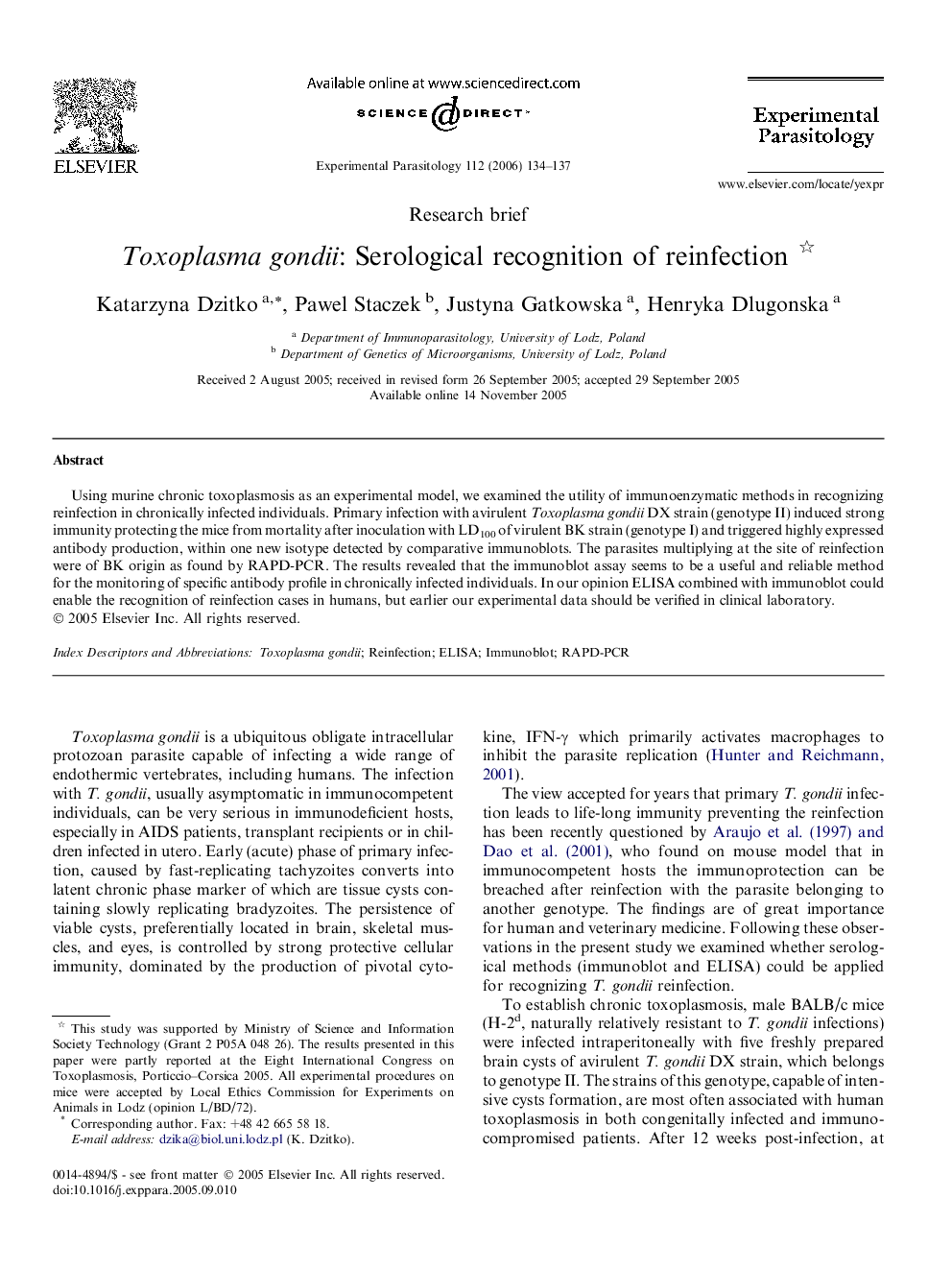| Article ID | Journal | Published Year | Pages | File Type |
|---|---|---|---|---|
| 4372072 | Experimental Parasitology | 2006 | 4 Pages |
Abstract
Using murine chronic toxoplasmosis as an experimental model, we examined the utility of immunoenzymatic methods in recognizing reinfection in chronically infected individuals. Primary infection with avirulent Toxoplasma gondii DX strain (genotype II) induced strong immunity protecting the mice from mortality after inoculation with LD100 of virulent BK strain (genotype I) and triggered highly expressed antibody production, within one new isotype detected by comparative immunoblots. The parasites multiplying at the site of reinfection were of BK origin as found by RAPD-PCR. The results revealed that the immunoblot assay seems to be a useful and reliable method for the monitoring of specific antibody profile in chronically infected individuals. In our opinion ELISA combined with immunoblot could enable the recognition of reinfection cases in humans, but earlier our experimental data should be verified in clinical laboratory.
Related Topics
Life Sciences
Immunology and Microbiology
Parasitology
Authors
Katarzyna Dzitko, Pawel Staczek, Justyna Gatkowska, Henryka Dlugonska,
